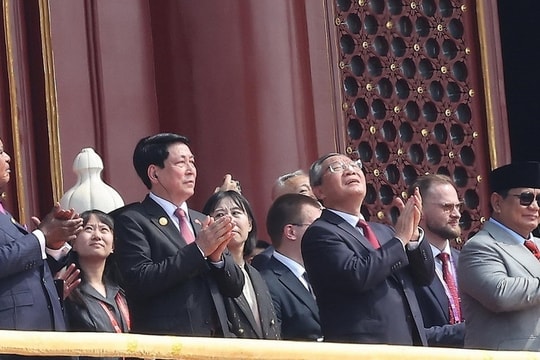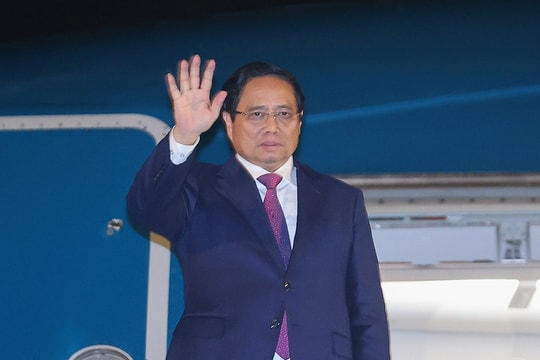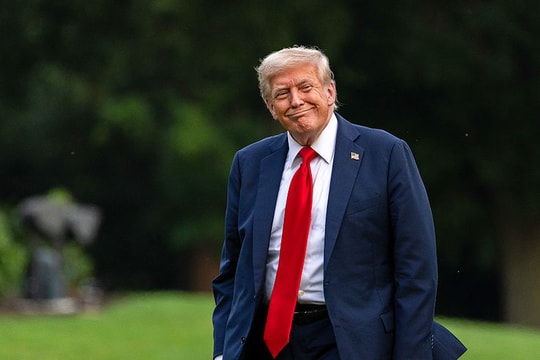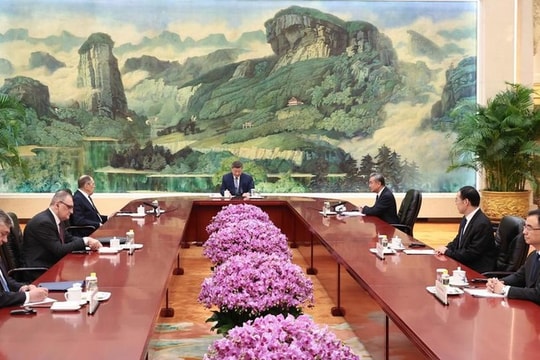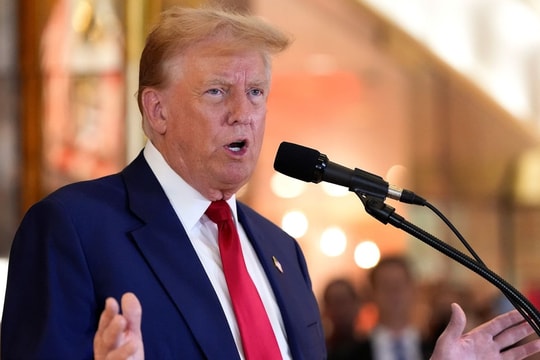The conflict between Mr. Trump and Mr. Xi
Globalization, the EU, the Middle East and North Korea are global issues that are expected to create major confrontations between Mr. Trump and Mr. Xi in the upcoming meeting.
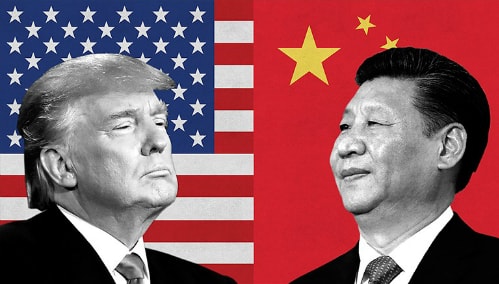 |
US President Donald Trump and Chinese President Xi Jinping. Photo: CNN |
When the first summit between US President Donald Trump and Chinese President Xi Jinping takes place in Florida, the US this week, both will prepare for a clash of views on a range of international issues from globalization to free trade, according to SCMP.
Globalization
Trump's "America First" agenda and his desire to reduce America's global leadership role comes amid China's efforts to expand its influence around the world.
Just days before Trump's inauguration in January, Mr. Xi said at the World Economic Forum in Davos, Switzerland: "Blaming economic globalization as the root cause of the world's problems is contrary to reality and this will not help solve the problems."
The remarks contradict Mr Trump's pledge in his inaugural address that his administration would put US interests first and bring jobs back to America.
"We've made other countries rich while the prosperity, strength, and confidence of our country has evaporated before our eyes," Trump said.
Free trade and foreign investment
China has been expanding its global presence with its Silk Road initiative and will host a summit to implement it in Beijing in May. It is also pushing for a free trade agreement with ASEAN and other countries called the Regional Comprehensive Economic Partnership (RCEP). China has sent representatives to Chile to discuss the future of the Trans-Pacific Partnership (TPP), fueling speculation that Beijing is looking to replace the US in the deal after Trump signed an executive order withdrawing the US from the TPP.
At Davos, Mr. Xi said: "We must commit to promoting free trade and investment through opening up and say no to protectionism (protecting domestic industry). Pursuing protectionism is like locking yourself in a dark room; although you can avoid the wind and rain outside, you will lack light and air."
Meanwhile, Trump said that TPP is a close version of the North American Free Trade Agreement (NAFTA) - the worst trade deal for the US according to Trump's assessment.
"For many decades, we've enriched foreign industry while American industry has suffered. One by one, the factories shuttered and left our shores with not a thought about the millions of American workers who were left behind," Trump said during his presidential inauguration.
European Union
Trump said Britain's decision to leave the European Union (EU) was "a great thing." He also publicly criticized German Chancellor Angela Merkel for her open-door policy toward refugees.
"I believe other countries will leave the EU. I think keeping the EU together is not as easy as people think," Trump said in an interview in January.
But ties between Europe and China are growing stronger, so Xi and other Chinese leaders have made clear Beijing's support for a united EU.
"China wishes to see a prosperous Europe and a united EU, and hopes Britain, as an important member of the EU, can play an even more positive and constructive role in promoting the in-depth development of China-EU relations," Xi said during a visit in 2015.
Middle East
China has a limited role in the Middle East and has avoided taking sides in conflicts there, despite its dependence on oil supplies from the region. However, China has been stepping up engagement with Middle Eastern countries in recent times.
"China and Muslim countries respect each other and have had mutually beneficial cooperation for a long time. This is a good example of harmonious coexistence between different civilizations," Xi said when welcoming Saudi Arabia's King Salman on March 16 in Beijing.
The US, on the other hand, has stoked controversy in the region. The Trump administration wants to impose a 90-day ban on entry for citizens from six Muslim-majority countries, including three in the Middle East: Iran, Syria and Yemen.
North Korea and Northeast Asian Security
North Korea is the Trump administration’s top security concern in East Asia. China views North Korea as a strategic buffer against U.S. political and military influence in Northeast Asia, and has resisted U.S. demands for years to impose tougher sanctions on North Korea, despite Pyongyang’s increasingly aggressive nuclear and missile development.
"North Korea is behaving very badly. They have been playing the United States for many years. China has helped very little!" Trump wrote on Twitter on March 17.
Chinese officials say Beijing does not want chaos on the Korean peninsula and has called on Pyongyang to stop provocations, but they have consistently insisted that the North Korean nuclear issue must be resolved through negotiations.
According to VNE

